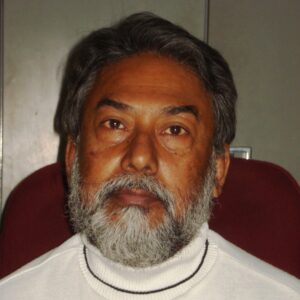The question is how the dispossession of the poor is understood? It is not immediately understood by the poor and the non-poor either ignores it as an externality or remains happy for the latter could save in the process. The poor remains poor inter-generationally for he failed to realise what the crooks realised. Bhaskar ponders over the issue and then moves on to tell us how petty politics have affected the academic world, bringing along with it, all the ills of the world of murky politics, in the weekly column, exclusively for Different Truths.
I was wondering after I bought a cabbage day before yesterday at three rupees (Rs. 3/-) how could I explain it – was it post-8/11 demonetisation effect of food deflation in the vegetable market or was it a reflection of ignorance of the seller in the buyers’ market. Was it my fault to pose in a particular way and ask the price? In a perfectly competitive market, so goes the standard textbook, my buying or his selling would not have affected the general price of cabbage. However, it was a day-based market (very short-term in Economics) and the saleable product was perishable.
My question, what is the price, led him to respond immediately. I bought it at the price charged understanding that the price was low and lower than what it was in the previous year. I applied everyone’s common sense salt pouring method in the kitchen to understand it was a little less than one kg. I could have bought two pieces at five rupees but in the process would have cheated fifty paisa more. I could not also pay more lest the buyers go against me – after all, it is a guild in economics that cheats the other. By the way, the cabbage was good in quality by its taste.
The question is how the dispossession of the poor is understood? It is not immediately understood by the poor and the non-poor either ignores it as an externality or remains happy for the latter could save in the process. The poor remains poor inter-generationally for he failed to realise what the crooks realised.
The short story generally remains incomplete for further questions. But it will remain incomplete unless I tell you that long back one buyer at Allahabad paid five rupees instead of two rupees for getting her shoe repaired by a cobbler. I thank her, though delayed, for she had the courage to defeat the buyers’ market at the bottom.
Public Nuisance: Politics in Academic Space
Some of my students asked me the differences between working in a university and a social science research institute in a major region in India. My response was choosing between public dispersed nuisance and public concentrated nuisance – or choosing to be in the frying pan or the fire. Of course, the value that is omnipotent is nuisance value. I had, however, no idea that historical public nuisance would be repeated in the concentrated nuisance case, as in a recent case that I observed. This is where we unlearn history and in the same process, very few move up the ladder and most of us pay the price. Hence the pricing is also not clear – one is involuntary nuisance non-paying the cost or rather deriving the benefit, while the rest pay the costs dearly. One way could have been to accuse the victim opening that the rest who paid the cost or waiting in the queue to pay did not question the entry of concentrated nuisance or injustice, if I may call it. I mean here the entry of political masters in a premier social science research institute at Allahabad. Political masters may not be aware of the proportionality between what they say and what the civil society expects from the visionaries (sic). But I am now under shock and awe, how the academic leaders could repetitively do the same unethical practice of polluting the academic space into that of a political space.
I have reasons to believe that everything in India boils down to proximity to polity and closeness to political masters, particularly for those who aspire to be academic masters. Most of the institutions in major regions in India suffer from this polity-determinacy. Still, then there may be exceptions by institutions and academicians who may not like to be administered by political masters. Who solves the puzzle? Again, political masters?
©Bhaskar Majumder
Photos from the internet.
#RadamJotting #EducationAndPolitics #Economics #Politics #IndianEconomics #Poor #Inflation #DifferentTruths







 By
By

